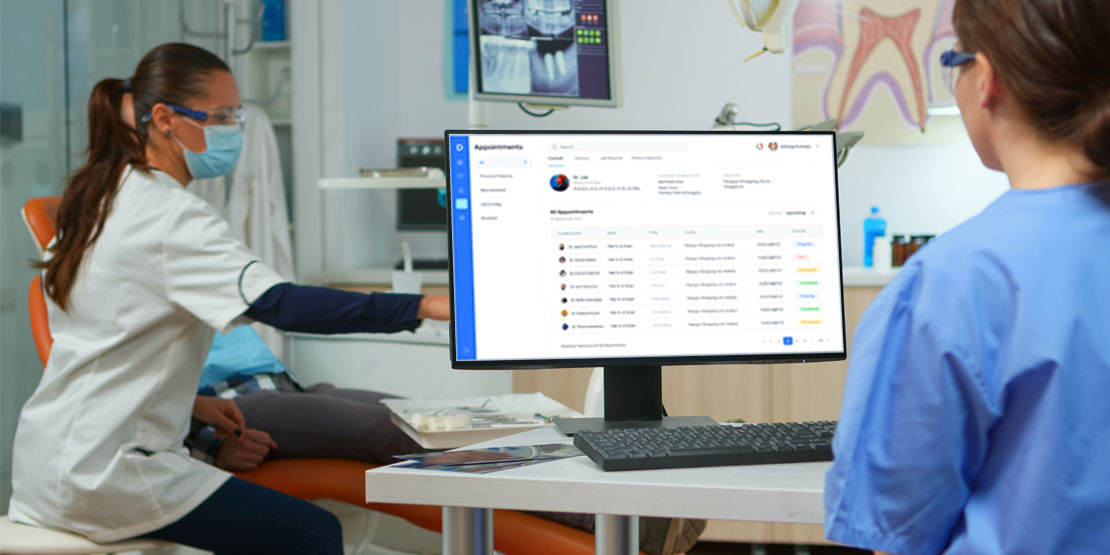
7 Best ERP Software for Healthcare
As the healthcare sector is on a path of continues evolving, the requirements for an ERP (enterprise resource planning) has also increased, ERP refers to the solutions that helps in business management process whereas a healthcare ERP are the ones that integrate all the functions that may be required in a healthcare organization these functions include client care, client detail management, medicinal inventory, financial management, risk management, and administrative tasks.
In this article, we will delve into the reason behind the need for ERP solutions in this sector, the top ERP software for healthcare sector in detail, what are the perks, Challenges and Considerations in ERP Implementation., Etc.
Reasons to have ERP Software for Healthcare.
The healthcare sector is one of the leading industries in the world, therefore, this industry needs an access to consistent, dependable technology systems that manage facilities like documentation of data, strategic planning, budgeting, employees, and patient feedback and other necessary processes. However, it is not always that every healthcare requires the same solutions, so the healthcare expert must wisely pre-plan the best technologies for their needs.
Few reasons
1. The management options of ERP software can help healthcare facilities with optimizing patient feedback and record.
2. Also, the ERP software can help the user to streamline and automate various other functions like bill generating, strategic planning process, budgeting, checking availability of staff and necessary equipment’s etc. Which helps the healthcare staff to make the best choice for their patients.
Top ERP Software for Healthcare
Odoo
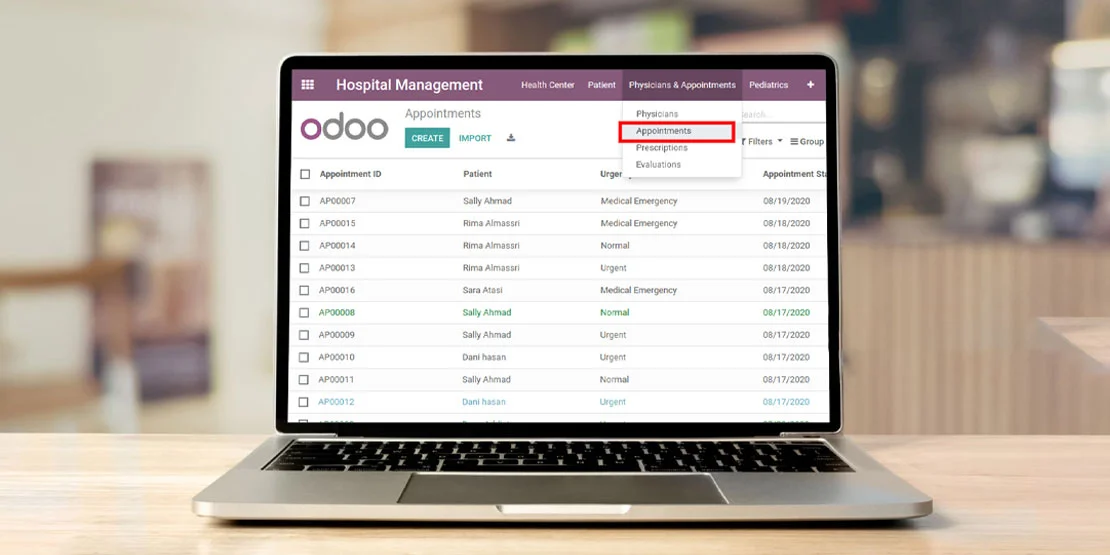
Overview
Odoo is an open-source versatile ERP solution which provides a wide range of applications for healthcare organizations, that helps the hospitals to manage day to day activities such as appointment details, prescription, patient detail, lab test report, availability of doctors, rooms, etc. this integrated approach allows for tailored implementations based on specific needs.
Key Features
Odoo includes features such as electronic medical records (EMR), Patients Diseases Report, and Pediatric Symptoms Checklist. It also offers tools for monetary management, Surgery scheduling, and project management, which makes it a complete solution for healthcare providers.
Benefits
Odoo's open-source and versatile nature with the integrated design make it prefect solution for healthcare organizations. Also, the fee of Odoo platform is less when compared to others. Odoo on the other hand has a large app ecosystem and wide community support ensuring customization options for better growth.

Epic
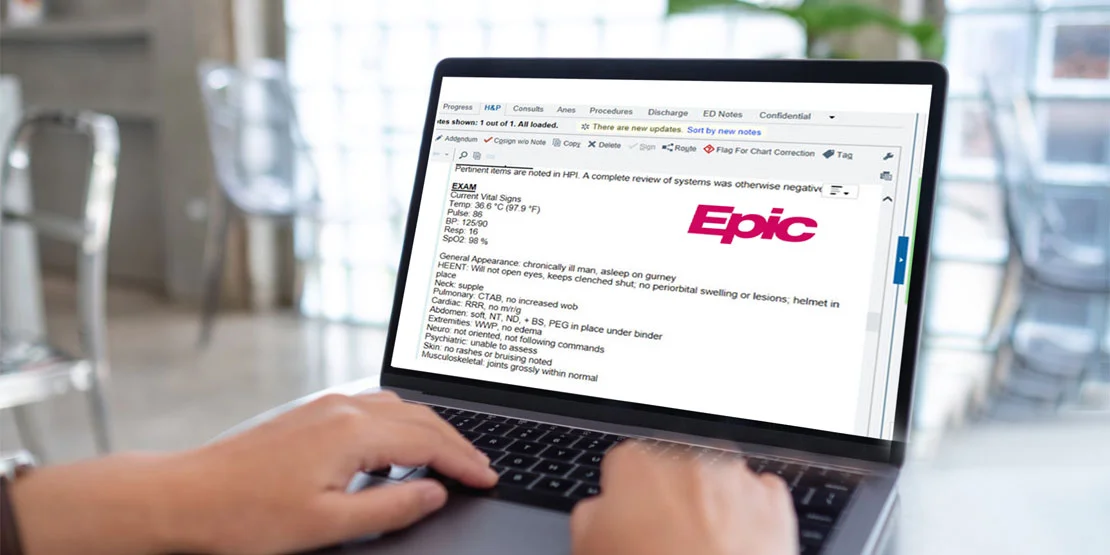
Overview
Epic is the major Electronic Health Record companies with the largest number of user Epic gives the choice to its user to access integrated features for revenue processing, with a complete integrated EHR option. Thus, these points make it an easy and complete software for various healthcare sectors.
Key Features
The key features of Epic include various patient management tools, clinical decision support, real-time data display, fast invoice generation, and much more.
Benefits: Cerner comes with numerous benefits like:
Customizable templates
Clinical decision support
Electronic prescribing/appointments
Finical management
Patient management
Cons:
The software includes various cost which can make it expensive for the small-scale heath sectors.
The interface is not easy to understand.
Lack of customer support and security.

Cerner

Overview
Is the software that provides a powerful combination of EHR and ERP solution to tackle various need of a healthcare industry, the EHR system provides a strong set of functions like order entry, prescription data entry and management with e- advising.
Key Features
Cerner also offers revenue cycle management, Interoperability, Clinical documentation, and patient engagement tools. It also helps the client choose customizable templates according to their vision with extensive patient portal.
Benefits: Epic comes with various benefits like:
User-friendly ERP interface
Provides complete documentation
Customizable modules/templates
Medicated decision support
E-counseling
Patient data management and engagement tools.
Cons:
Can be High-priced for small healthcare organizations due to its extensive features.
Time consuming implementation process compared to other ERP solutions.
Require highly skilled professionals to integrate with other healthcare-specific systems such as human capital management which is another additional cost.

WebPT
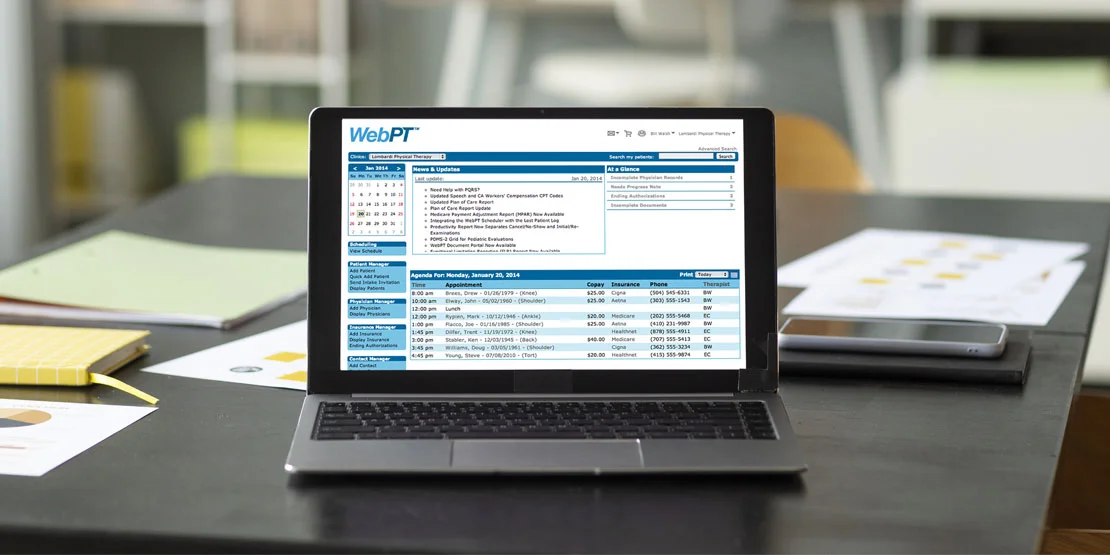
Overview
WebPT another Cloud-based healthcare ERP solution which was especially designed for healthcare organizations offering physical therapy practices.
Key Features
The WebPT offers a variety of features, within the physical therapy practices including customizable templates, scheduling, billing, and clinical decision support. It also includes patient engagement tools, to make it easy for the patient to access their portal and check for automated appointment reminders.
Benefits:
It is the best platform for healthcare providing physical therapy practices
Customizable templates for the ERP system makes it easy to integrate the new features
Clinical decision support
Provides Patient portal
Can be easy accessed due to its Cloud-based ERP
Cons:
Limited only to healthcare providing physical therapy practices
Overheads for customization, WebPT do not provide free trials or free versions
Limited customer support and no live messaging

NextGen Healthcare
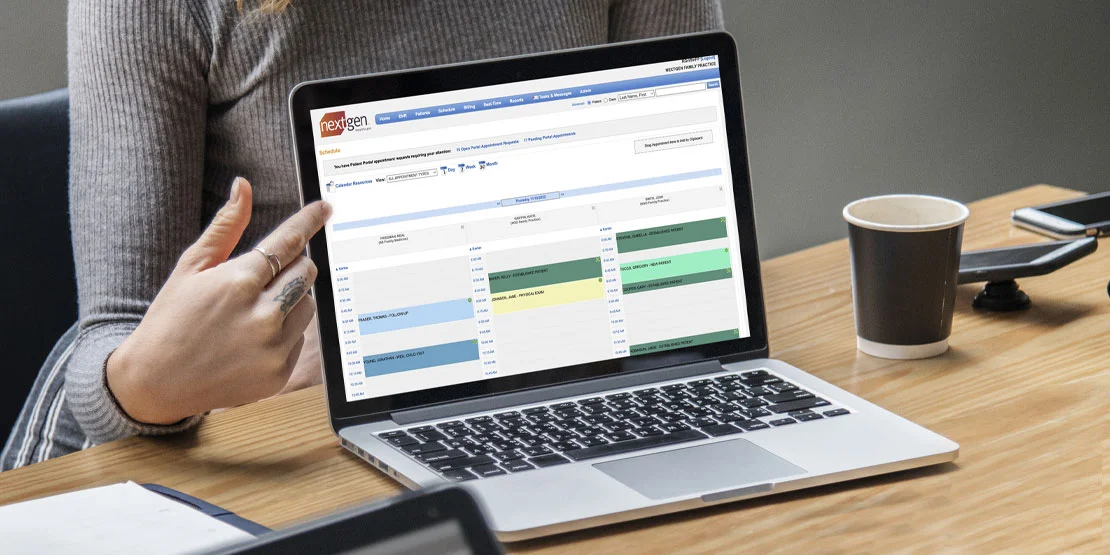
Overview
NextGen Healthcare is an America based healthcare solutions software company that supports a range of solutions ideal for ambulatory and healthcare of all sizes.
Key Features
The key features include Clinical Workflow, Voice Recognition, and Document Management. NextGen Healthcare serves numerous healthcare companies, including hospitals, clinics, and private practices across the globe.
Benefits:
Highly customizable software that can be tailored to the needs of different healthcare firms.
Provides a wide Range of software solutions that helps the healthcare companies to improve their operations and patient management, including Insurance and Claims, Lab Integration and EM Coding.
Have a good brand image as the best ERP solution in the healthcare industry, thus have a wide community of healthcare firms under it.
Cons:
Expensive due to its extreme brand value in the market.
ERP software can be complex and requires training, which is another extra cost.
There have been few users who find difficulty in performance and security with large amounts of patient data.

eClinicalWorks

Overview
eClinical Solutions is one of the leading data & analytics platform that works for the healthcare sector of various sizes.
Key Features
The features include electronic health record software, practice management software, and Nursing documentation. The eClinicalWorks serves a wide range of healthcare companies.
Benefits:
Offers a comprehensive suite of software solutions which includes Population health management, Reporting and analytics which help the healthcare sector to improve their operations and patient care management.
eClinicalWorks EHR software is versatile hence it is highly customizable according to the needs of different healthcare companies.
ERP solution that offers a range of other features and tools, such as inbuild - Messenger and appointment scheduling.
Cons:
Lack of proper customer support, particularly in resolving technical issues.
The Software offers no set-up fees but to scale up the companies there is no Free Trial.
Lack of data security on eClinicalWorks' platform.

Kareo
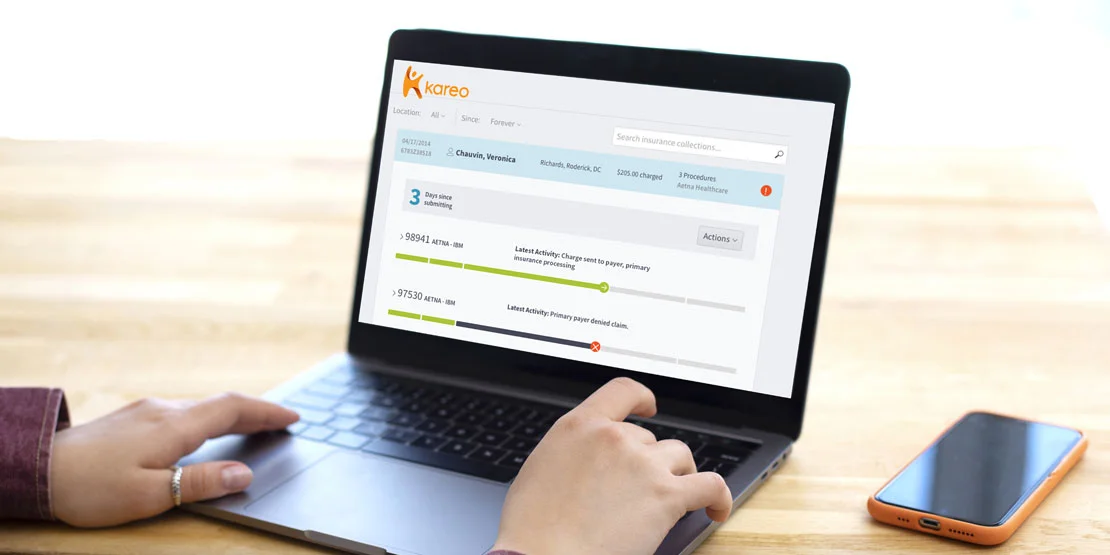
Overview
Kareo is a Cloud-based ERP system that provides a full-featured EHR and is designed for a small healthcare organization or private practice.
Key Features
The platform provides a suite of tools that helps healthcare companies to manage their workflow with features like SOAP Notes, billing, Electronic Claim Submission, and appointment scheduling. The Kareo EHR platform can be used on mobile with its easy-to-use interface.
Benefits:
Cost-effective EHR solution that is ideal for small scale healthcare industries
Kareo ERP for healthcare software is a user-friendly and easy to learn software
Highly customization options
Provides free tutorials which help the new user to understand better
24/7 excellent customer support
Cons:
As it is Designed especially for the needs of small-scale healthcare sectors it has a limited number of users.
Slow interface when working with the huge data migration or processing
Needs more tools to maximize services
Limited features availability
Challenges and Considerations in ERP Implementation
While implementing an ERP solution can bring various benefits to a healthcare organization, it can also have a few challenges and considerations that must be focused on for a successful implementation. These Challenges and Considerations include:
Data migration:
Data Integration Challenges can be one of the leading problem in the healthcare sector as it is growing every day and gave a huge data to manage on the daily bases it is obvious that the generated data should be organized well to regulate the processing this data is also generated from multiple sources, including Voice Recognition, inventory, Electronic Claim Submission, and Patients Diseases Report. Integrating this data into a single ERP system can be a difficult task to manage due to unpredictable data formats, quality issues, and the importance of maintaining the map from original system These Data Integration challenges can delay the effectiveness of the ERP system and lead to errors in the electronic health record.
Change management:
Implementing an ERP solution requires large changes in processes and workflows, which can be another challenging task for the employees. To solve such issues the business needs to invest in Effective change management strategies, like extensive training, communication, and client involvement, are a few vital points for a smooth transition.
Customization vs. standardization:
Healthcare organizations may have unique requirements that require customization of the ERP solution. However, customization is a powerful tool to meet the vision it also can be a difficult task if not done the right way as too much customization can complicate the implementation process and the data structure, it also increases the additional costs, and extend timelines.
Ongoing maintenance and updates:
Every ERP solutions require regular maintenance, updates, by the developers to ensure ideal performance, data security, and compliance. Healthcare organizations should allocate trusted resources and plan regular updates for the maximum benefits in the ERP.
Training support:
To have the maximum benefit from the ERP solutions the user must have the depth knowledge about the interface and should go under the extensive training to adopt to any new system much faster and it also ensure successful implementation
Thoroughly select the partner and management:
Choosing the right ERP solution provider is crucial for successful implementation. Healthcare organizations should carefully evaluate the providers based on their industry experience , product roadmap, and customer support, and maintain a strong partnership throughout the implementation and beyond.O2B technologies and odoo-developers.com can be your trusted sources for the best ERP solutions for the healthcare industry.
Cost effective and timeline management:
Implementing an ERP solution can be a vital investment in terms of time and resources. The healthcare sectors should have a deep knowledge about their own needs and implementation before assigning the work to any partner the list of realistic budget and timeline, factoring in potential risks and contingencies, to ensure a successful implementation within the allocated resources should be made at the first place.
FAQs
What are the Reasons to have ERP software for healthcare?
There can be varies reasons to have a good ERP software, especially in the healthcare industry as the sector has the large number of data, requires a strategic planning, budgeting, and also a good data flow for the employees, whereas the ERP system works on optimizing the overall patient feedback and record. And it also helps the user to have a systematic set of records for an easy understanding.
Why we should consider Odoo for ERP software solution in healthcare?
There are endless reasons that the user should consider Odoo as their ERP software solution specially if they belong to the Heathcare sector. As Odoo is an open-source versatile ERP solution that helps to work on the different aspects of the hospital like works on the appointment details, helps the patient with the prescription, allot the patient detail, lab test report, and much more all under one roof.
Who are the best partners for ERP software in healthcare sector?
Choosing the right ERP solution providers are like a helping hand that helps in the successful implementation. for the healthcare sector, the user can have the customized modules, work on the features that are trending in the market, work on elevating the customer satisfaction and much more. Hence it is important to have a trusted sources as your ERP solutions provider for the healthcare industry.




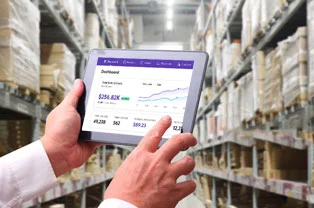
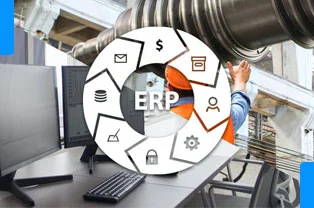





















































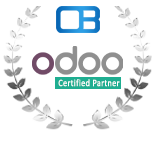
 USA
USA INDIA
INDIA